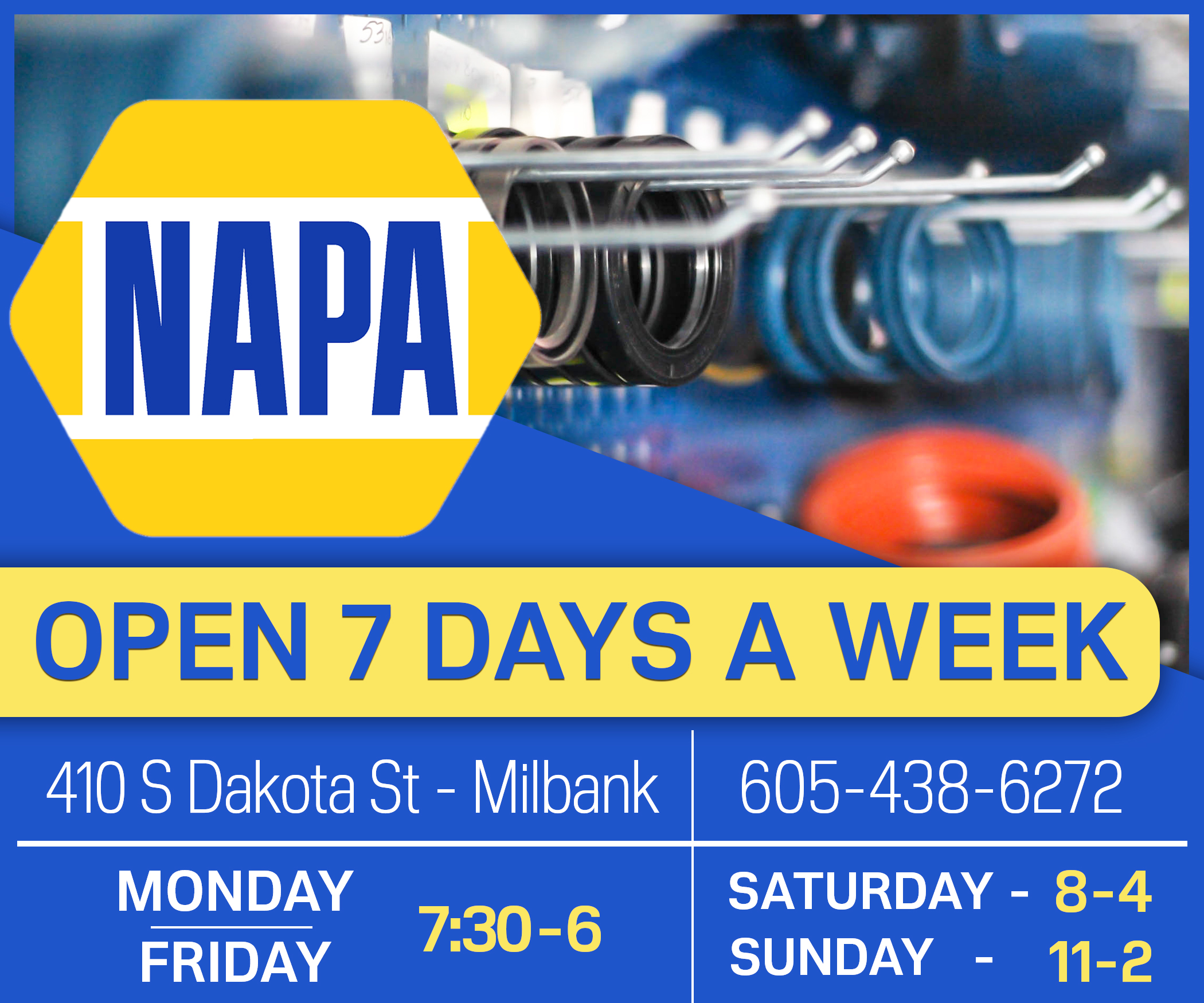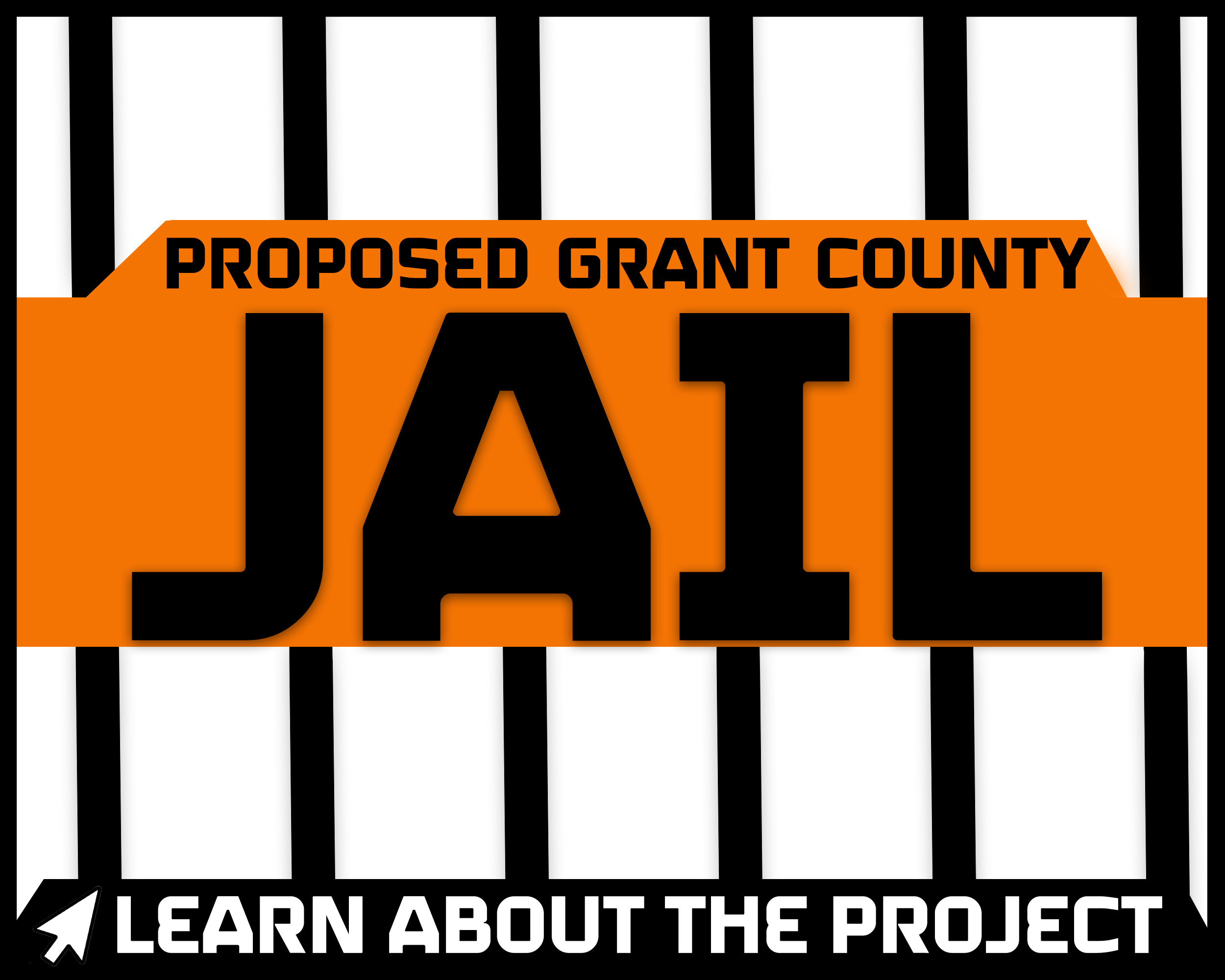Bagaus Brothers and Band Inducted Into SD Country Music Hall of Fame
Local News September 22, 2019 Staff Writer 0

 On September 14, the Suns of the West, a country band created by Neil and Terry Bagaus formerly of Milbank, was inducted into the South Dakota Country Music Hall of Fame. The brothers, their sister, Marcie, and 14 other band members entered the Hall of Fame as a group. Nine members were also inducted individually.
On September 14, the Suns of the West, a country band created by Neil and Terry Bagaus formerly of Milbank, was inducted into the South Dakota Country Music Hall of Fame. The brothers, their sister, Marcie, and 14 other band members entered the Hall of Fame as a group. Nine members were also inducted individually.
Although most of us dream of it, few have experienced life on the road as a musician. Neil recalls the ups and downs from his vantage point: (pictures in the article are of their musical career and in no particular order)
 My first guitar came out of the Sears catalogue. It was 1965, my brother Terry was 12, I was 14, and we taught ourselves to play. We were singing for anyone we could corral into our backyard. Our biggest influences were our mom, Lorraine, and the Hank Williams Sr. movie, Your Cheatin’ Heart, which we watched at the DeFea Theatre in Milbank. We loved the hats, the story, and the songs. Soon, we had our own cowboy hats and shirts, and were memorizing the words to Hey Good Lookin’. Mom…well, she was right there to guide and push us.
My first guitar came out of the Sears catalogue. It was 1965, my brother Terry was 12, I was 14, and we taught ourselves to play. We were singing for anyone we could corral into our backyard. Our biggest influences were our mom, Lorraine, and the Hank Williams Sr. movie, Your Cheatin’ Heart, which we watched at the DeFea Theatre in Milbank. We loved the hats, the story, and the songs. Soon, we had our own cowboy hats and shirts, and were memorizing the words to Hey Good Lookin’. Mom…well, she was right there to guide and push us.
Mom orchestrated our first first public appearance at the Milwaukee Road Women’s Club House in Milbank on May 28, 1965. She called us the Milwaukee Musicals. They paid us zilch.
 Mom, without asking Terry or me, also entered us in the junior talent division at the Milbank Snow Queen Contest. On December 27, 1965, we stepped on to the stage in the old Milbank High School to perform to a packed house. I remember feeling scared stiff, but I opened my mouth and sang, “Send me the pillow that you dream on.” We wrapped up that song to a roar of applause and a whistle from our grandpa that echoed throughout the building – segues to our second song. We were hooked.
Mom, without asking Terry or me, also entered us in the junior talent division at the Milbank Snow Queen Contest. On December 27, 1965, we stepped on to the stage in the old Milbank High School to perform to a packed house. I remember feeling scared stiff, but I opened my mouth and sang, “Send me the pillow that you dream on.” We wrapped up that song to a roar of applause and a whistle from our grandpa that echoed throughout the building – segues to our second song. We were hooked.
 We won the junior talent contest that night. We won again in 1966 and 1967.
We won the junior talent contest that night. We won again in 1966 and 1967.
Those Snow Queen trophies opened the door to more opportunities. On January 19, 1966, for the first time, we were paid to sing. We played at the Milbank Kiwanis Club and we each received two dollars. In February, we sang on KWAT radio in Watertown. The station raised money each year by broadcasting a live program called Talent With A Heart. It showcased local talent and raised money for the heart fund. We were encouraged enough to purchase a real amplifier and microphone.
One day, our dad, Lloyd, came home and asked if we wanted to do a live show for KDIO radio on Sundays. Because we had done a little radio on Vi Berkner’s program in Milbank, we were not really nervous. We wrote the commercials, including a jingle for the sponsor, Aden’s Conoco, and styled the show after the old country music radio and TV shows that featured a hymn near the end of the show.
 In South Dakota, you learned to drive at age 14, so we jumped into our car – we called her the Brown Bomber – and drove to the studios outside of Ortonville, Minnesota, for almost a year and a half. Bruce and Harry really helped make the show fun. They joined in with jokes and comments. I remember one Easter when we all huddled around the microphone for a chorus of Here Comes Peter Cottontail.
In South Dakota, you learned to drive at age 14, so we jumped into our car – we called her the Brown Bomber – and drove to the studios outside of Ortonville, Minnesota, for almost a year and a half. Bruce and Harry really helped make the show fun. They joined in with jokes and comments. I remember one Easter when we all huddled around the microphone for a chorus of Here Comes Peter Cottontail.
 We started to receive letters requesting songs and personal appearances. Unfortunately, high school slowed us down a bit.
We started to receive letters requesting songs and personal appearances. Unfortunately, high school slowed us down a bit.
That November, however, we answered a call from Channel 7 in Alexandria, Minnesota. They invited us to perform on Country Jubilee, which starred the “Singing Swede” Jimmy Jenson. The show aired on Sunday afternoons, but was taped early in the week at night. It was cold and snowy traveling to the TV studios, but the crew made sure we finished taping early enough to get home for school the next day. The next Sunday, our whole family gathered around the TV to watch the program. We heard Jimmy’s theme song start, but there was no picture. We listened to the program, but no picture appeared during the entire show. Later that afternoon, we received a call from KCMT apologizing for the technical problem. It was an early lesson in Murphy’s Law. One we tested quite often.
 We entered the Snow Queen talent competition again in 1968 and took first place in the senior division. I’m not sure if our heads actually got bigger, but our cowboy hats seemed a little tighter. Terry and I split the $25 prize. In 1968, that bought a lot of gas and movies.
We entered the Snow Queen talent competition again in 1968 and took first place in the senior division. I’m not sure if our heads actually got bigger, but our cowboy hats seemed a little tighter. Terry and I split the $25 prize. In 1968, that bought a lot of gas and movies.
The year 1968 had created a rhythm for our days: go to school, play guitar, eat, sleep, do the radio show on Sunday, attend Luther League on Wednesday and choir practice on Thursday, and sing at community events on Friday and Saturday evenings. All that changed when our dad was promoted to roadmaster by the Milwaukee Railroad and transferred to Aberdeen. We taped our KDIO show for its final six months, packed up our gear, and moved to Aberdeen.
 We were invited to sing at the Tiffany Middle School PTA in Aberdeen. Soon after our second appearance, we met with Larry Mitzel, who wanted us to join his band. We practiced in Larry’s basement for a couple of weeks, and on October 12, 1968, the Country Sons debuted at the VFW in Redfield. On November 15, the Country Sons played for the first time in Aberdeen at the VFW. Suddenly, the days of working community centers and schools disappeared. We now charged $15 each plus gas money.
We were invited to sing at the Tiffany Middle School PTA in Aberdeen. Soon after our second appearance, we met with Larry Mitzel, who wanted us to join his band. We practiced in Larry’s basement for a couple of weeks, and on October 12, 1968, the Country Sons debuted at the VFW in Redfield. On November 15, the Country Sons played for the first time in Aberdeen at the VFW. Suddenly, the days of working community centers and schools disappeared. We now charged $15 each plus gas money.
 South Dakota had tolerant alcohol laws back then, and we often played at places where you needed to be 21 to buy a drink. No one ever asked our ages or carded us. We played every place that had a dance floor, including what used to be called beer joints – bars which often put a chicken wire fence in front of the band. The wire was positioned to protect the band from flying objects – usually beer bottles. To illustrate the necessity for the wire, the proprietor would strategically leave a beer bottle stuck in the net.
South Dakota had tolerant alcohol laws back then, and we often played at places where you needed to be 21 to buy a drink. No one ever asked our ages or carded us. We played every place that had a dance floor, including what used to be called beer joints – bars which often put a chicken wire fence in front of the band. The wire was positioned to protect the band from flying objects – usually beer bottles. To illustrate the necessity for the wire, the proprietor would strategically leave a beer bottle stuck in the net.
Larry, who also had a full time job, was finding it increasingly difficult, though, to maintain both his work schedule and the band’s hectic calendar. He decided to bow out late in 1968, and 1969 brought the birth of the Suns of the West, the addition of new band members, and our first taste of playing on the same stage as some big-name musicians.
 We had a gig almost every weekend. We learned a lot and almost all of it by experience. One thing we discovered was teachers were not allowed to drink in the towns where they taught. So, when we played Groton, we came face to face with many of our Aberdeen Central High School teachers, who came to Groton to drink and dance. We sat in front of them with instruments on Saturday nights and again on Monday morning with notebooks and pens. I don’t remember if our grades went up or down…
We had a gig almost every weekend. We learned a lot and almost all of it by experience. One thing we discovered was teachers were not allowed to drink in the towns where they taught. So, when we played Groton, we came face to face with many of our Aberdeen Central High School teachers, who came to Groton to drink and dance. We sat in front of them with instruments on Saturday nights and again on Monday morning with notebooks and pens. I don’t remember if our grades went up or down…
The band experienced more changes. Bob Jarvis joined our group as lead guitar, and Mom sat in on bass guitar when Terry attended a school function. We added a new drummer, Mitch Jenner, and our sister, Marcie, joined us on vocals in November. We learned playing at bars at night – 133 dates across central and northeastern South Dakota – and going to school during the day was hard work. We often performed four nights at the Firehouse Lounge in Aberdeen, and three days later, played four nights in Mitchell.
 We did a lot of shows and they tended to blend together. But, the one on November 24, 1969, is forever etched in my mind. It would never happen today. Hank Williams Jr. was scheduled to perform at the Aberdeen Civic Arena, and on the afternoon of the show, my mom called the Holiday Inn and asked to talk to him. Believe it or not, 30 seconds later a voice said, “Hello, this is Hank.” My mom, unaffected by hearing my idol on the other end of the line, said, “You need to have my boys come to the arena and play in your show tonight.” Hank replied, “OK. Have them meet us at the bus.” Mom turned and said, “Get ready. You’re playing in the show tonight.” I truly thought someone was playing a trick on us, but we headed down to the arena anyway, and sure enough a man met us by the bus and said, “Guys you’re singing just before Hank takes the stage. Go see Lamar before you’re introduced.”
We did a lot of shows and they tended to blend together. But, the one on November 24, 1969, is forever etched in my mind. It would never happen today. Hank Williams Jr. was scheduled to perform at the Aberdeen Civic Arena, and on the afternoon of the show, my mom called the Holiday Inn and asked to talk to him. Believe it or not, 30 seconds later a voice said, “Hello, this is Hank.” My mom, unaffected by hearing my idol on the other end of the line, said, “You need to have my boys come to the arena and play in your show tonight.” Hank replied, “OK. Have them meet us at the bus.” Mom turned and said, “Get ready. You’re playing in the show tonight.” I truly thought someone was playing a trick on us, but we headed down to the arena anyway, and sure enough a man met us by the bus and said, “Guys you’re singing just before Hank takes the stage. Go see Lamar before you’re introduced.”
The arena was full that night. I’m guessing around 3,000 people. We were ushered to the side of the stage to meet Lamar Morris, Hank’s band leader. Lamar asked what song we’d chosen to do. I told him and asked if he had ever heard it and if they could play it. With a kind smile he said yes and asked what key we sang it in. He added, “You guys start singing and we will join in.” After an introduction, in which they pronounced our last name correctly, we went to center stage and the band gave us a D on the guitar. I leaned into the microphone and sang, “We don’t smoke marijuana in Muskogee, We don’t take our trips on LSD…” The place went wild. People clapped and sang along, “I’m proud to be an Okie from Muskogee.” A week earlier Okie From Muskogee had hit the top of the country charts in the US. (So, of course, Lamar had known it.) After the show, Terry and I were invited to hang by the stage and sign autographs. Two kids from South Dakota were living the dream!
After the Hank Williams Jr., show, Terry and I were approached by a representative of the Hap Peebles Agency in Wichita, Kansas. He told us Hap was interested in our act. Hap Peebles was the biggest talent agency and promoter in the upper Midwest. His early clients included Elvis and Loretta Lynn. We started doing package shows for him.
We also fell into the pattern of going to school during the day and playing a gig at night, which often meant we would start performing at 9 p.m, quit at 2 a.m., drive home, go to school, and get back in the car again at 4:30 p.m. We repeated that five or six days a week. Every musician (and South Dakotan) has stories about traveling in the winter – battling snowstorms, black ice, and sub-zero temperatures. With as many miles as we clocked, we collected our share. Once, the wheels flew off our trailer coming home from the Dew Drop Inn in Mahto. I can still see the sparks flying. Miraculously, none of our equipment was damaged. Not a single dent.
On March 6, 1970, we were booked at the Anchor Lounge in Groton. It was a miserably cold night and we played until 2 a.m. I went to get the car and trailer and the guys brought the equipment outside. I’m sure I scraped those windows for 30 minutes to be able to see out the front (or maybe I just scraped off enough to make two holes so I could sort of see). When I heard the crunch under my tires, I knew exactly what had happened. Scratch one bass and one rhythm guitar. I drove right on top of them.
We fell into a new routine. We worked four days in Mitchell and drove home every night. We’d take Sunday off and then drive to Miller for another week of back and forth. That’s a round trip of 300 miles in all kinds of weather. During the day, we were in college and Marcie was in high school. In order to maintain this schedule, we needed some “help.” NoDoz – a little white pill containing 200 mg. of caffeine – came to our rescue. It became commonplace for the driver to take two or three NoDoz to get us home.
One night when I was piloting the bus, a band member asked if we were almost home. I said, “No. We’re not to Redfield, yet.” Redfield was about 40 miles from Aberdeen. He replied, “I don’t think so.” We were actually about a mile from our house. I had driven over 40 miles and could not remember any of it! (I understand how people get hooked on such things. Getting off the pills was much harder than popping them in my mouth.)
On August 12, 1970, the Suns of the West participated in its first session in a recording studio. The plan was to make two 45 rpm singles for release to radio stations and get them on juke boxes. (Juke box? Go ask your grandparents.) Terry wrote both of his songs, and I decided to record one song I had written and a gospel tune. We’d never stepped foot in a studio, but things went pretty well. Or, at least relatively well. First, I forgot the words to my gospel tune at home. But, I remembered enough to make the record, and I think I made up some other pretty good words, too.
 Some days, though, things just flowed like a Patsy Cline song. One September evening in 1970, we were playing the Mitchell VFW. A man requested the song, The Games People Play. As soon as we started, young people rushed onto the dance floor dancing and singing. We realized they were the Brothers and Sisters from the show at the Corn Palace. Terry sang Cab Driver and they chimed in with backup. Then, another gentleman came up to the stage. It was Tennessee Ernie Ford! He asked if it was ok for him to join the band after he ate supper. (Are you kidding? Is it ok?)
Some days, though, things just flowed like a Patsy Cline song. One September evening in 1970, we were playing the Mitchell VFW. A man requested the song, The Games People Play. As soon as we started, young people rushed onto the dance floor dancing and singing. We realized they were the Brothers and Sisters from the show at the Corn Palace. Terry sang Cab Driver and they chimed in with backup. Then, another gentleman came up to the stage. It was Tennessee Ernie Ford! He asked if it was ok for him to join the band after he ate supper. (Are you kidding? Is it ok?)
He finished his meal and joined us on stage. Ernie started by singing Cab Driver and ended 40 minutes later with Peace in the Valley. He told jokes and treated us like family. At one point, he turned to my sister, Marcie, and in his southern drawl, said, “Ain’t she purdy.” We were also treated to front row seats at his show at the Corn Palace three nights later. We entered through the back door, visited with everyone backstage, and were treated like royalty. The last thing Tennessee Ernie Ford said to us was, “Bless your little pea-pickin’ hearts.”
 Since 1969, the band had traveled in cars pulling trailers or a Volkswagen mini bus. How did we stuff five people, suitcases, and all our gear in? It was a miracle. In 1971, we traded up to a school bus. Our dad purchased the bus for $250, and I headed to our grandpa’s home in Summit. Grandpa helped me build bunk beds, a table, closets, and an equipment room. Kim May, helped, too. When we finished, we handpainted the bus purple. Emblazoned with Suns of the West in gold, she was ready to roll.
Since 1969, the band had traveled in cars pulling trailers or a Volkswagen mini bus. How did we stuff five people, suitcases, and all our gear in? It was a miracle. In 1971, we traded up to a school bus. Our dad purchased the bus for $250, and I headed to our grandpa’s home in Summit. Grandpa helped me build bunk beds, a table, closets, and an equipment room. Kim May, helped, too. When we finished, we handpainted the bus purple. Emblazoned with Suns of the West in gold, she was ready to roll.
Like many things, the idea was better than the reality. On our first trip, the motor blew up. Just another $2,500 and we were on the road again. That old crate looked nice, but she had her secrets. I lost count of how many times it broke down. In December, we were rear-ended by an ambulance while turning into the Galley in Webster.
The bus was also a bit chilly in the winter. Actually, we darn near froze to death. One time stands out more than any other – December 31. New Year’s Eve and it was negative 30 degrees outside. (Maybe colder inside the bus.) Needless to say, it was a long drive home from Mansfield in the middle of the night. My fingers were blocks of ice.
Why did we paint the bus purple? Lots of reasons. The Partridge Family had their bus and we had ours. It got noticed on the highway. I saw the bus again in Milbank in 1979. I looked again last year, but could find no sign of it. I know she’s lurking out there somewhere hoping we go back on the road.
 In 1971, we made a few more adjustments to the band. We lost some members; gained others. Kim May from Mobridge joined the group on steel and lead guitar. Larry Berg from Lily jumped behind the drums. We slowed down our pace and took time to enjoy college life by cutting the number of days on the road in half until fall. Terry took a DJ job at KABR in Aberdeen, and I became the manager of the college FM station. The early morning shift created new challenges. Many times driving back from a gig, Terry would stop the car, leap out, and run around it as fast as he could to get enough fresh air to stay awake. I even remember Larry joining him on a few rounds. Kim, Larry, and I also had jobs at KASD, the college radio station. Plus, I served as the voice of the play-by-play for the Northern State Wolves baseball games.
In 1971, we made a few more adjustments to the band. We lost some members; gained others. Kim May from Mobridge joined the group on steel and lead guitar. Larry Berg from Lily jumped behind the drums. We slowed down our pace and took time to enjoy college life by cutting the number of days on the road in half until fall. Terry took a DJ job at KABR in Aberdeen, and I became the manager of the college FM station. The early morning shift created new challenges. Many times driving back from a gig, Terry would stop the car, leap out, and run around it as fast as he could to get enough fresh air to stay awake. I even remember Larry joining him on a few rounds. Kim, Larry, and I also had jobs at KASD, the college radio station. Plus, I served as the voice of the play-by-play for the Northern State Wolves baseball games.
 We scheduled only half as many gigs in 1971 as we did in 1972. Our dad was transferred to Chicago in June 1971, which transplanted our family, including Marcie, our female vocalist, and our baby brother, Gene to Illinois. To replace Marcie, Kim walked around the Northern State College campus in Aberdeen and asked a girl if she could sing and wanted to join a band. Edie Sandmeier from Long Lake became our new vocalist. We doubled the number of dates we played and expanded our horizons. Little did we know our dad was still on the job as our promoter.
We scheduled only half as many gigs in 1971 as we did in 1972. Our dad was transferred to Chicago in June 1971, which transplanted our family, including Marcie, our female vocalist, and our baby brother, Gene to Illinois. To replace Marcie, Kim walked around the Northern State College campus in Aberdeen and asked a girl if she could sing and wanted to join a band. Edie Sandmeier from Long Lake became our new vocalist. We doubled the number of dates we played and expanded our horizons. Little did we know our dad was still on the job as our promoter.
As 1972 buzzed by, our schedule became grueling. In addition to going to college, there were times we worked an average of 25 gigs a month. Luckily, five tired people traveling in a van crammed full of equipment never get on each other’s nerves. But, we were making good money, playing great music, and having a ball.
 Most people don’t know this, (Well, they will now.) but I began hosting hypnosis shows after our musical performances. I did the typical suggestions such as you are now a cat, or a dog, or you have body odor, etc. One night at the Continental Club in Guyman, Oklahoma, I hypnotized a biker, who was the cook at the club, and our drummer, a skinny guy who probably didn’t weigh more than 120 pounds. The biker stood about six-foot three, weighed 250 pounds, and wore a fully-loaded ammunition belt. It didn’t take long to get them hypnotized, and then I suggested to our drummer that he was a ferocious bulldog (of course) who hated cats. I informed the biker he was a tiny, defenseless kitty. When I woke them up, all hell broke loose. They tumbled over the bar and under the bar. Tables and chairs whizzed by. They even tipped over the pool table. We all laughed so hard at the little guy chasing the big guy. The Club was a mess! I decided I’d better stop the mayhem, so I touched each of them on their forehead and told them to sleep. Then, I removed the suggestion. The next day when we arrived at the club, the biker-cook said, “I told you, you couldn’t hypnotize me.” He and the drummer didn’t remember anything. They felt sore, but neither knew why.
Most people don’t know this, (Well, they will now.) but I began hosting hypnosis shows after our musical performances. I did the typical suggestions such as you are now a cat, or a dog, or you have body odor, etc. One night at the Continental Club in Guyman, Oklahoma, I hypnotized a biker, who was the cook at the club, and our drummer, a skinny guy who probably didn’t weigh more than 120 pounds. The biker stood about six-foot three, weighed 250 pounds, and wore a fully-loaded ammunition belt. It didn’t take long to get them hypnotized, and then I suggested to our drummer that he was a ferocious bulldog (of course) who hated cats. I informed the biker he was a tiny, defenseless kitty. When I woke them up, all hell broke loose. They tumbled over the bar and under the bar. Tables and chairs whizzed by. They even tipped over the pool table. We all laughed so hard at the little guy chasing the big guy. The Club was a mess! I decided I’d better stop the mayhem, so I touched each of them on their forehead and told them to sleep. Then, I removed the suggestion. The next day when we arrived at the club, the biker-cook said, “I told you, you couldn’t hypnotize me.” He and the drummer didn’t remember anything. They felt sore, but neither knew why.
 As I said earlier, our dad was a great promoter. He never quit. One day as he was driving around Chicago, he saw a building with a sign saying Attractions, Inc. Dad walked in and promptly told the folks manning the desk they needed to hire his kids’ band from South Dakota. They were polite and said bring us a tape and a photo. (Probably repeated that to a hundred people every day.) Dad phoned us that evening and told us to send him our photos and a tape. We set up our only microphone on our reel-to-reel tape recorder and sang a few songs.
As I said earlier, our dad was a great promoter. He never quit. One day as he was driving around Chicago, he saw a building with a sign saying Attractions, Inc. Dad walked in and promptly told the folks manning the desk they needed to hire his kids’ band from South Dakota. They were polite and said bring us a tape and a photo. (Probably repeated that to a hundred people every day.) Dad phoned us that evening and told us to send him our photos and a tape. We set up our only microphone on our reel-to-reel tape recorder and sang a few songs.
What do you know? The folks at Attractions listened to the tape, looked at the photos, and our dad walked out of the office with a handshake deal. A month later, I signed the contracts for Suns of the West to back up country stars at fairs and festivals all over Illinois and Wisconsin. Our dad’s handshake led to four more years of shows booked by Attractions.
The fairs near Chicago proved to be fun. Usually, Playboy Bunnies turned up to entertain the crowd and we enjoyed the scenery.
That summer of ’72 found us juggling between South Dakota, Iowa, Illinois, and Wisconsin. We’d play a week in South Dakota, drive to Illinois for a date or two, and then return to the Dakotas. (Yes, we still loved it.) We opened for three big stars: Danny Davis & the Nashville Brass, Wilma Burgess, and Ronnie Sessions. We’d change drivers, turn up the radio, and head down the road. Our favorite song was Alone Again, Naturally by Gilbert O’Sullivan. They played it so often on WLS Chicago it was like a broken record. (We couldn’t listen to country all the time.)
 But, by the middle of the summer, I was exhausted. I slept on the floor of the van from Illinois to Aberdeen and checked into the hospital. I had a temperature of 103 and a diagnosis of infectious mononucleosis. Mono hit me hard, and it took a long time to get my strength back. Our working schedule dropped to 10 days or less a month for the remainder of the year.
But, by the middle of the summer, I was exhausted. I slept on the floor of the van from Illinois to Aberdeen and checked into the hospital. I had a temperature of 103 and a diagnosis of infectious mononucleosis. Mono hit me hard, and it took a long time to get my strength back. Our working schedule dropped to 10 days or less a month for the remainder of the year.
As 1972 came to a close, the band was worn out and needed a rest. But, in February 1973, when the Sam Gibbs Booking Agency in Wichita Falls,Texas, called, I jumped in my car and headed down to Texas. On my way, I stopped by the Hap Peebles Talent Agency. They asked me to drop off Sammi Smith (Help Me Make It Through the Night) at her next engagement. I delivered her to Kansas City to a show that also featured Stonewall Jackson.
After I arrived in Texas, I realized Sam at the Sam Gibbs Agency used a unique method for booking gigs. He’d pin a map to the wall and throw a dart at it. Where it stuck was where you went.
 One of the first places Sam selected for us was the NCO Club at Offutt Air Force Base near Omaha, Nebraska. We traded in the van for a brand new Winnebago Chieftain and hit the road. At the time, Offutt was the home of the US Strategic Air Command – our top base during the Cold War. The Vietnam War was also still going on. So, we were put through extensive background checks before we were allowed on the base. They gave us maps indicating where we could and couldn’t go, and told us not to get lost. Darkness and unfamiliar roads, made the drive home a bit tense each night. But, we were honored to play for our servicemen. Still are.
One of the first places Sam selected for us was the NCO Club at Offutt Air Force Base near Omaha, Nebraska. We traded in the van for a brand new Winnebago Chieftain and hit the road. At the time, Offutt was the home of the US Strategic Air Command – our top base during the Cold War. The Vietnam War was also still going on. So, we were put through extensive background checks before we were allowed on the base. They gave us maps indicating where we could and couldn’t go, and told us not to get lost. Darkness and unfamiliar roads, made the drive home a bit tense each night. But, we were honored to play for our servicemen. Still are.
Sam also sent us to Bossier City, Louisiana to the Blues Lounge on the strip – a micro Las Vegas. It would be an understatement to say we had never worked at a place like it. The lounge was huge, dark, and open 23 hours a day. Under Louisiana state law they had to close one hour for cleaning. We were scheduled to play four hours a night starting at 9 p.m. They didn’t tell us it wasn’t four consecutive hours.
We set up on one stage and Lois Johnson set up on the opposite stage. Lois charted 20 songs and worked four years with Hank Jr. She even recorded an album with him. We played an hour, and they played the next hour. We all played till 4 or 5 a.m, six nights a week for two weeks. The lounge also employed saloon girls. Each table featured a girl who sat at the table and enticed men to buy them drinks and dance with them. We must have had fun, because we still talk about Bossier City.
As usual with Sam Gibbs, we ended our show on Sunday morning at 4 a.m. and departed for our next gig. From Bossier City, it was 1830 miles away in Gillette, Wyoming.
The Winnebago shut off only to get gas, which it managed to eat at an alarming rate. We left Bossier City at 4 a.m. and arrived in Gillette about four hours before we were supposed to take the stage. Gillette was in the midst of an oil boom. The population had doubled between 1960 and 1970. Men outnumbered women 30-50 to one. Our stop was just outside the city limits.
You could sense it was a pretty rough place. After we got set up, the bar manager informed us someone had been stabbed on the dance floor the previous Saturday night. He told me if I had a gun to hide it in the back of my amplifier. So, when the sheriff stopped by, I sure didn’t expect Terry to take the heat. But, my brother wasn’t 21 yet, and the sheriff insisted he would come back to verify Terry’s age the next night. We had no idea where to get a fake ID, so, instead, we purchased a long guitar cord to reach from the stage out the back door. Terry played bass outside about 20 feet from the stage. Well, he did until the sheriff came back.
The Sam Gibbs Agency had been keeping us busy, but by April, the long drives, living together in a Winnebago, and performing six nights a week took its toll on us. We were ready for a break. We took an eighth-month hiatus.
During the summer, Kim May and Marcie got married and Larry Berg returned to Lily to help on his family’s farm. Jon Batteen from Aberdeen joined the band as the drummer. We regrouped in December and, as usual, our schedule turned hectic, but, it was good to be back together. In February, Jenni Blocker from from Jal, New Mexico joined us to tickle the ivories and sing.
 Jenni and I were married in June. This created a band with five family members until, in 1975, Terry married Deanna Schulte who became our drummer. The family count hit an even six.
Jenni and I were married in June. This created a band with five family members until, in 1975, Terry married Deanna Schulte who became our drummer. The family count hit an even six.
One of the nightclubs we often worked was the Gaslight Lounge on Main Street in Aberdeen. During the summer of 1974, we worked 10 out of 12 weeks there, playing to full houses most of the time. We witnessed quite a few scuffles and a few brawls. One night comes to mind. I was singing and a fight broke out. It was just like a Clint Eastwood movie. Two guys argued over a girl, beer was spilled, and soon fists were punching. The rule was: the band keeps playing. It was surreal watching the crowd pummeling each other while we played the Ray Price hit For the Good Times. The bar started to look like an AWA wrestling match. The police eventually arrived, threw some people out, and everybody went back to dancing and drinking. We never stopped playing. The police came so often we got to know them by their first names.
We held Saturday matinee jam sessions at the Gaslight, too, which unearthed talented and not-so-talented performers. Some sang on key and some… Most did the same song every week. One lady named Charley loved to hear me play the banjo. Every night she would sit at the bar and holler, “Banjo, Neil, Banjo!” I miss her.
John, a construction worker who looked like the wrestler the Crusher, invited me to his house to try his homemade beer. The Silver Dollar Bar next door featured strippers, and the two single guys in our band would hightail it next door during all our 15 minute breaks. Of course, I would have to retrieve them before the next show began. Jon Batteen, who played with us for most of 1974, and my brother Terry knew the way to the Silver Dollar blindfolded.
People bar hopped to hear different bands, and it was common to find a man dressed in a suit sitting next to a farmer in bib overalls. Everyone had a great time. One Saturday night, I counted 27 establishments hosting live entertainment. It was a heyday for live music.
Then, in the spring of 1975, I received another call from Attractions in Chicago. They wanted us to work the fair circuit that summer. We would open for and back up Bonnie Ferguson. Bonnie was the voice of the commercials for the Chicago Tribune. She also sang the commercials for Schlitz Beer and recorded for Ovation Records. She had been nominated as the Most Promising Female Vocalist in the Music City News out of Nashville.
The fair and festival season turned out to be a real joy. Of course, it also challenged Murphy’s Law.
On August 9, 1975, we played the Boone County Fair in Belvidere, Illinois. We opened the show with Bonnie and shared a dressing room camper with Jerry Reed. Jerry might be one of the finest guitar pickers I have ever heard, but he refused to sign autographs. We were more than happy to mingle, sell records, and sign autographs. That show remains our career high for the most albums we sold in a day.
On August 21, 1975, we worked the Kalamazoo County Fair in Kalamazoo, Michigan, with Bonnie and stars from the Lawrence Welk Show, including Arthur Duncan, one of the greatest tap dancers of all time. The comedian was Joe Conti – the grandfather of comedy in the Chicago area. The crowds tipped the 10,000 mark and Guy & Ralna were also on the bill. We never finished that show.
As we entered the final sets, storm clouds appeared and the weather turned threatening. We were all ushered into the “basement” below the stage to a space resembling a concrete bunker. Tornado warnings blew and it started to rain like mad. Water began to fill the basement until it reached above our knees. Arthur and Guy and Ralna climbed up on tables. The electricity stayed on during the storm even as the water level continued to rise. The plug-ins were about three feet above the ground and the fair management worried the water would electrocute us. But, I wasn’t scared. I was more worried about our gear on the stage. When all was said and done, we somehow ended up with Ralna’s skirt. Years later, Guy & Ralna played a show in Aberdeen, and we finally got that skirt back to Ralna.
 In Crown Point, Indiana, we did a show with several Playboy Bunnies from Chicago. Our bunny was Hugh Hefner’s girlfriend, Barbie Benton. She came down in a long black limo and spent the entire day in our tent. She was friendly and nice. She posed for pictures and put on a pretty good show.
In Crown Point, Indiana, we did a show with several Playboy Bunnies from Chicago. Our bunny was Hugh Hefner’s girlfriend, Barbie Benton. She came down in a long black limo and spent the entire day in our tent. She was friendly and nice. She posed for pictures and put on a pretty good show.
If you are over the age of 60, you’ve probably heard the song The Tennessee Waltz. It’s one of the state songs of Tennessee and was a huge hit for Patti Page. In 1975, we did a series of concerts at the Sangamon County Fair in New Berlin, Illinois, with Pee Wee King and Redd Stewart, the writers of the song. Pee Wee and Redd were inducted into the Country Music Hall of Fame in 1974, and we were on their celebration tour.
We also performed with Billy ThunderKloud and the Chieftones. Their record What Time of Day had just climbed to No. 16 on the Hot Country Charts. One of our shows together was a week after Hank Williams Jr.’s near-fatal accident – a 440 foot fall down a mountain in Montana. Joining the Chieftones on stage were members of Hank Jr.’s band, including some from the original Hank Williams band, The Drifting Cowboys. Lamar Morris, Hank’s former band manager (from the Aberdeen Arena in 1969), was also along. It was a great day and My Crazy Mixed Up Heart wondered how I’d ever gotten so lucky.
One of my most treasured memories, though, occurred at a much quieter time. Jenni and I were cruising down the highway. We had our favorite radio station tuned in and the hits kept rolling by – Loretta Lynn, Conway Twitty, Charley Pride, Sons of the West. Yep! It was the first time we had ever heard one of our songs come on the radio. It was a thrilling moment and one I’m grateful we experienced together.
 But in 1979, I placed my guitar in the case, clicked it shut, and headed back to Milbank. I took Jenni to the DeFea Theatre and we bought the place. We spent 20 happy years behind the scenes and raised our family there.
But in 1979, I placed my guitar in the case, clicked it shut, and headed back to Milbank. I took Jenni to the DeFea Theatre and we bought the place. We spent 20 happy years behind the scenes and raised our family there.
 Sometimes when I was alone in that darkened theater, I would replay in my head the time Terry and I sat there watching Your Cheatin’ Heart. I’d hum a few bars of Willie Nelson’s Ain’t It Funny How Time Slips Away. Then, I’d turn on the lights, grab some popcorn, and get ready for the next show.
Sometimes when I was alone in that darkened theater, I would replay in my head the time Terry and I sat there watching Your Cheatin’ Heart. I’d hum a few bars of Willie Nelson’s Ain’t It Funny How Time Slips Away. Then, I’d turn on the lights, grab some popcorn, and get ready for the next show.
 Individual members from Suns of the West inducted into the South Dakota Country Music Hall of Fame include:
Individual members from Suns of the West inducted into the South Dakota Country Music Hall of Fame include:
Neil Bagaus- rhythm guitar and vocals
Terry Bagaus – bass guitar and vocals
Marcie (Bagaus) May – tambourine and vocals
Kim May (Marcie’s husband) – lead guitar and steel guitar
Jenni Bagaus (Neil’s wife) – keyboard
Deanna (Schulte) Bagaus (Terry’s wife) – drums
Larry Berg – drums
Edie Sandmeier – vocals
Terry Foster
Other members of Suns of the West inducted along with the band include:
Lorraine Bagaus, Joe Bateen, Doug Benson, Curt Dahlke, Mike Erdahl, Don Gross, Bob Jarvis, and Mitch Jenner.













No comments so far.
Be first to leave comment below.